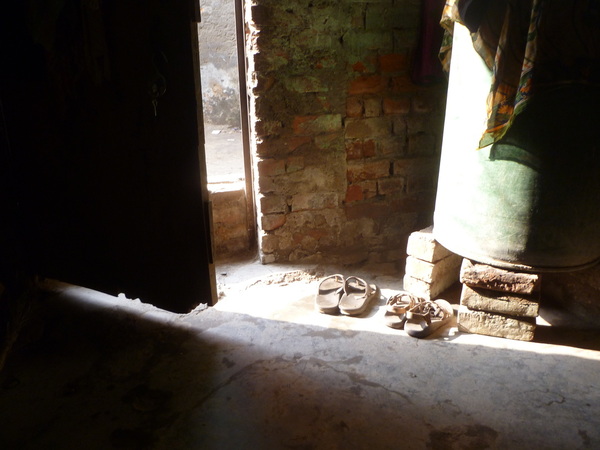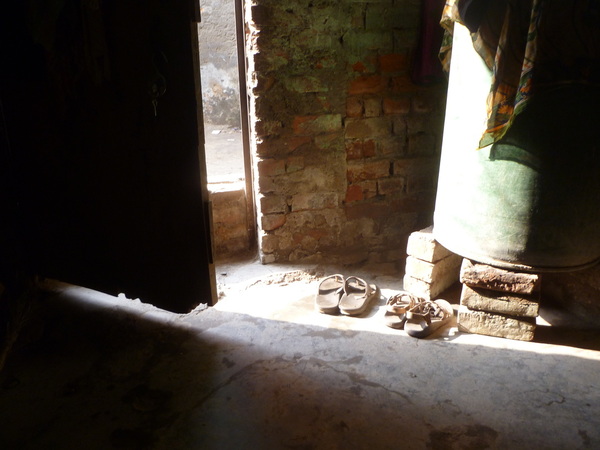It is dusk on Christmas Eve, and we are leaving our room with a handful of friends to go caroling around our neighborhood. We carry candles, and as we stop at each house and in each alleyway, we hand out candles to those who gather around and they join us as we continue to make our way around the neighborhood: a growing, candlelit mob. Most of the crowd is made up of energetic children who are thoroughly enjoying the music and the novelty of having their own personal flames to carry around. Eventually, everyone’s noise and excitement begins to drown out the singing, and I burst out laughing in the middle of “Silent Night” because of the utterly un-silent night unfolding around me: kids fight over the now-scarce candles, adults swat at them and yell for them to be quiet, and everyone is jostling for position in the narrow alleyway where we’re standing as more and more curious onlookers gather and add to the din of voices. “All is calm, all is quiet,” I manage to sing out before the irony of the situation overwhelms me with laughter. Actually, all is chaos.
At the time, A and I were both thinking about what an unconventional Christmas this was. In hindsight, the whole thing was quite fitting— what better way to remember Jesus’ humble birth in an obscure Palestinian town than by walking the dirt pathways of this forgotten corner of the world, past goats and cows and pigs and the simple homes of some of the first people to whom Jesus would probably choose to reveal himself if he were to be born again in our century?
It’s not as though Jesus was born into a peaceful, quiet world anyway. On that night when Christ was born, his homeland was under violent occupation by a foreign military, a zealot insurgency was going on, and before he hit the age of two, he and his parents would become refugees fleeing a genocide. He was born into a highly stratified society where the wealthy exploited the poor, and where racial, ethnic, and religious divisions fragmented the population (Romans, Jews, Samaritans, “sinners”…).
The more I think about it, the more appropriate the Christmas Eve ruckus of our neighborhood seems. Jesus didn’t wait for our chaos to subside, for all to become peaceful and for every heart to prepare him room before he came. He just came to us in the midst of our chaos. He spoke his peace over us even while we ignored and misunderstood him, and began to bring a new world into existence within the shell of the old.
At the time, A and I were both thinking about what an unconventional Christmas this was. In hindsight, the whole thing was quite fitting— what better way to remember Jesus’ humble birth in an obscure Palestinian town than by walking the dirt pathways of this forgotten corner of the world, past goats and cows and pigs and the simple homes of some of the first people to whom Jesus would probably choose to reveal himself if he were to be born again in our century?
It’s not as though Jesus was born into a peaceful, quiet world anyway. On that night when Christ was born, his homeland was under violent occupation by a foreign military, a zealot insurgency was going on, and before he hit the age of two, he and his parents would become refugees fleeing a genocide. He was born into a highly stratified society where the wealthy exploited the poor, and where racial, ethnic, and religious divisions fragmented the population (Romans, Jews, Samaritans, “sinners”…).
The more I think about it, the more appropriate the Christmas Eve ruckus of our neighborhood seems. Jesus didn’t wait for our chaos to subside, for all to become peaceful and for every heart to prepare him room before he came. He just came to us in the midst of our chaos. He spoke his peace over us even while we ignored and misunderstood him, and began to bring a new world into existence within the shell of the old.
Source: New feed

